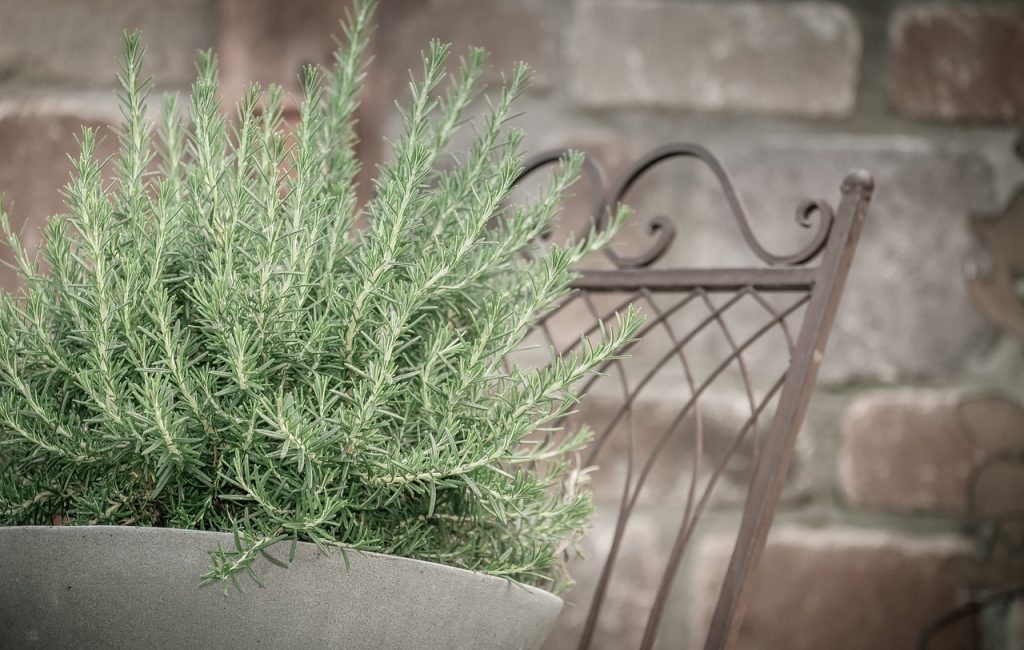
Rosemary is not known not only for its culinary flavors but also for its natural scents and health benefits. This is a member of the mint family and is an excellent source of iron, calcium, and vitamin B-6.
Rosemary is used primarily as a dried herb or dried and powdered extract as a culinary condiment. Moreover, it’s medicinal properties include pain relief, improved digestion, memory, and better immunity.
Why You Should Grow Rosemary
Rosemary has a wide range of health and culinary benefits, and a few of the many are discussed below.
Improved Digestion
Rosemary has been used to treat indigestion since ancient times in Europe. This herb is also used to treat heartburns, intestinal gas, loss of appetite, and issues related to liver and gallbladder.
Neurological benefits
Studies show that Rosemary also has positive effects on your brain. Especially for people who suffer from chronic anxiety or have had a stroke, this herb can be beneficial. Moreover, it has also shown positive results in Alzheimer’s disease.
It contains a compound called carnosic acid that helps in repairing the damage in the brain caused by free radicals—the healing properties of rosemary fight against brain damage and help in faster recovery.
Cancer prevention
Rosemary extracts used while cooking beef reduce the production of cancer-causing agents. Moreover, crude ethanolic rosemary extracts are scientifically known to reduce the spread of leukemia and breast cancer cells.
Enhanced memory and concentration
The aroma of rosemary can practically lift the mood of a person. It can also boost concentration, precision, and performance of the individual.
Rosemary extracts relieve stress and hormonal imbalances, helping an individual to concentrate better. It is a cognitive stimulant that enhances alertness and focus.
Antioxidant and anti-inflammatory properties
This herb is an excellent source of immunity-boosting chemicals that also enhance blood circulation. Rosemary is also rich in antioxidants and anti-inflammatory compounds.
The chemical composition of the herb is incredibly beneficial against bacterial infections, especially staph infections.
Rosemary has its origin in the Mediterranean region and grows best in sunny areas with good drainage. If you’re planning to grow Rosemary in your garden, there are a few things you need to bear in mind.
Adding Flavours to Your Dishes
You cannot talk about rosemary without talking about its amazing flavour and how it goes so well with many meat dishes such as steak, lamb and chicken. If you don’t have rosemary available, you can always use thyme, tarragon or oregano. These are excellent substitutes for rosemary.
How to plant and grow Rosemary
This is a perennial herb and tends to grow in rich, well-drained soil in full sun. You can grow this herb in containers or garden beds. The following tips will help you down the lane if this is your first time with the herb.
- Fresh composting
Growing Rosemary in a pot can be a little tricky as it needs repotting in fresh compost mix every other year. Moreover, the plant can grow quite big and make shifting cumbersome.
- Avoid waterlogging around roots
Avoid getting the plant soaking wet as it might result in rotting roots or stunted growth. Grow the sapling in a small container initially, before you transfer it to the garden.
- Cut back
Also, make sure that you cut back annually to prevent the plant from becoming woody. You can also mulch with leaf mold in autumn for manure.
- Seeds or cuttings?
Growing a plant from seeds will take an eternity, so you can buy a sapling or use a cutting after the flowering season.
- When to plant it?
Although Rosemary plants are frost resistant when adult, frostbites and waterlogged roots can kill immature plants, therefore, the best seasons to plant Rosemary is autumn or spring.
- Harvesting Rosemary
You can either gently pluck small sprigs from the stem or cut large braches using secateurs.
Remember you can grow this herbs indoor so it makes it easier to maintain.
Rosemary is an inherently low maintenance herb and doesn’t require much attention apart from cutting back. Keep the soil well-drained and fertile. You can either use manure or a balanced fertilizer to keep your plant happy and healthy.
Any medical information in the above article is given as opinion and has not been vetted by a medical professional.
